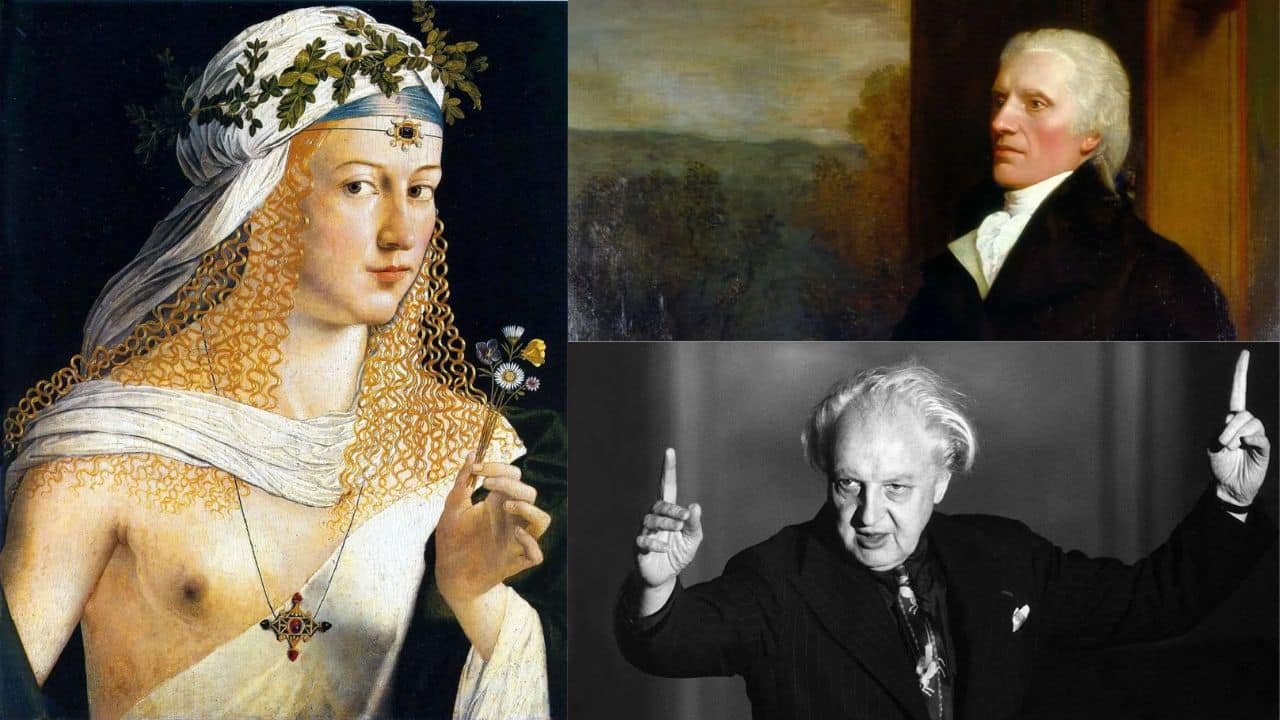Listen to the Podcast:
Financial literacy is fundamental to the creation of wealth. It is not the amount of money you earn that matters, but how you earn, manage, and develop it. The distinction between the wealthy and the poor resides frequently in their habits and mentality.
By comprehending and adopting the habits of self-made millionaires, your financial future can be transformed. This article will discuss twelve habits that distinguish the wealthy from the impoverished, as well as how embracing financial literacy can lead to prosperity.
12 Habits of The Rich Vs Poor (Financial Literacy)
1. Rich people have a tendency to believe that they create their own lives. Poor people have a tendency to believe that life just happens to them. (Growth Mindset Versus Fixed Mindset)
The wealthy recognize that they are in charge of their own destinies. They believe in influencing their circumstances and constructing the existence they desire. On the other hand, impoverished individuals frequently view themselves as helpless victims of circumstance. Adopting a growth mindset enables you to assume responsibility for your life and pursue continuous improvement.
2. Rich people are accustomed to setting goals. Poor people are accustomed to submitting to their circumstances.
Goal-setting is a prevalent practice among the wealthy. They are aware that having clearly defined goals helps them maintain focus and motivation. Poor people, on the other hand, tend to let life’s circumstances dictate their actions, rather than proactively molding their future. To accumulate wealth, it is essential to establish financial objectives and work assiduously to achieve them.
3. Rich people are accustomed to thinking about the big picture. Poor people have a tendency to think small.
Rich individuals have no fear of big dreams. They recognize that significant accomplishments necessitate ambitious objectives. In contrast, poor people tend to limit their ambitions and settle for mediocrity. Adopt the practice of big-picture thinking to increase your likelihood of achieving financial success.
4. Rich people are accustomed to concentrating on opportunities. The habitual focus of the poor is on obstacles.
The wealthy are always on the lookout for new opportunities to create value and develop their wealth. However, poor people have a tendency to focus on obstacles and problems, which can prevent them from seeing opportunities for success. Learn how to overcome obstacles in the pursuit of prosperity by cultivating an orientation toward opportunities.
5. Rich individuals frequently model other wealthy and successful individuals. The poor are resentful and envious of wealthy and successful individuals.
Successful individuals recognize that there is much to learn from those who have already attained financial success. They analyze and imitate the habits, strategies, and mentality of the wealthy. In contrast, poor people frequently harbor resentment and envy toward the affluent, which prevents them from learning valuable lessons. Seek out mentors and models and learn from their triumphs and missteps.
6. Rich individuals routinely sell themselves and their businesses. Poor individuals view selling and promotion negatively.
The wealthy comprehend the significance of promoting their enterprises and selves. They recognize that in order to achieve success, they must be their own greatest advocates. Poor people have a negative view of sales and marketing, which hinders their success. Self-promotion and marketing are indispensable to attaining your financial objectives.
7. Rich people put their money into investments, while poor people save all of their money.
When the rich put their money to work, they want to win. They want it to grow, and to make that happen, they are willing to take calculated chances. The rich way of thinking is all about benefits. There is a bad side to every choice you can make in life.
People who are poor will choose the best option. Their goal is to make sure they don’t lose any money. They make sure they won’t lose their money on the stock market by putting it in a savings account.
8. Rich people are routinely compensated based on performance. The poor choose to be compensated by selling their time.
Rich individuals concentrate on generating income through results-driven activities, such as entrepreneurship and investing. They are aware that trading time for money limits their potential earnings. However, poor people frequently choose to work for a fixed wage, which can hinder their ability to achieve financial independence. Instead of marketing your time, concentrate on creating value and earning money through results.
9. Rich individuals are accustomed to creating cash-flowing assets. The tendency of the poor to be their employers’ cash-flowing asset.
Wealthy people prioritize the development and acquisition of assets that generate passive income. They recognize the importance of diversifying their sources of cash flow in securing their financial future. In contrast, poor people frequently rely solely on their employment for income, leaving them vulnerable to economic fluctuations. Develop the discipline of investing in assets that generate cash flow to accumulate wealth over time.
10. Rich individuals routinely concentrate on their net worth and cash flow. The focus of the poor is their employment income.
For the wealthy, net worth and capital flow are the primary indicators of financial health. They are aware that increasing their net worth and sustaining a positive cash flow is necessary for wealth creation. However, poor people tend to focus solely on their employment income, ignoring the significance of assets and liabilities. Focus on increasing your net worth and cash flow to establish a solid financial foundation.
11. Rich people are continually learning and growing. Poor people believe they know everything already.
The cornerstone of success for affluent individuals is continuous education. They recognize that knowledge is power and endeavor to increase their knowledge of finance, investments, and business. It is common for poor people to believe they know everything, which hinders their development and prevents them from obtaining financial success. Commit to lifelong learning and maintain an awareness of the most recent financial strategies and opportunities.
12. Rich people routinely succeed by putting their money to work through investing, business, and assets. Poor People Earn Their Money Through Hard Work.
Finally, wealthy individuals excel at putting their money to work. They invest in enterprises, real estate, and financial instruments that produce passive income and increase in value over time. Poor people, on the other hand, frequently earn their income through labor alone, without the aid of investments or assets. Learn to put your money to work by investing in assets and opportunities that generate income.
The Importance of Financial Literacy To Become Rich
Financial literacy is the foundation for financial success and wealth accumulation. It refers to the knowledge, skills, and self-assurance required to make informed decisions regarding money management, investments, and personal finances. Financial literacy is essential for multiple reasons:
- Making Informed Financial Decisions: Financial literacy enables you to make prudent financial decisions. It assists you in comprehending the ramifications of various financial products and services, allowing you to select the most appropriate options for your specific situation.
- Budgeting and Saving: A solid grasp of financial concepts enables you to construct a realistic budget, monitor expenses, and save for short- and long-term objectives. Budgeting and savings are indispensable for establishing a firm financial foundation and avoiding debt.
- Debt Management: Financial literacy equips you with the knowledge to effectively manage and reduce debt. It enables you to comprehend the cost of borrowing, distinguish between good and poor debt, and devise strategies for paying off debt and avoiding future financial pitfalls.
- Investing and Wealth Creation: Individuals with financial literacy can recognize and capitalize on investment opportunities to increase their wealth. Risk and return, asset allocation, and diversification are fundamental to creating a successful investment portfolio, which they comprehend.
- Retirement Planning: Financial literacy allows you to plan a secure and comfortable retirement. It helps you determine how much money you will need to maintain your desired lifestyle in retirement and develop a savings and investment strategy to reach that objective.
- Financial Independence: The key to attaining financial independence is financial literacy. It enables you to break free from living paycheck to paycheck and to create a life with no financial constraints.
- Confidence and Decreased Stress: Financial literacy increases one’s confidence in managing money, thereby reducing stress and anxiety regarding one’s financial situation. This tranquility has a positive effect on your overall health and quality of life.
- Generational Wealth: Knowing about money can help you build wealth that will last for decades, helping you, your children, and people in the future. You can help your kids have a good life in the future by teaching them about money and saving.
- Contribution to the Economy: Financial literacy contributes to a more stable and robust economy in a society. When individuals make well-informed financial decisions, they contribute to a prosperous economy, which benefits everyone.
Financial literacy is crucial for attaining financial success and accumulating wealth. By developing your financial knowledge and skills, you will be able to make informed decisions, effectively manage your finances, invest wisely, save for retirement, and attain financial independence.
Conclusion
Financial literacy is the key to a prosperous and abundant lifestyle. By comprehending and adopting the habits of self-made millionaires, your financial future can be transformed. Embrace the power of financial literacy and begin accumulating wealth immediately by adopting these eleven practices of the wealthy.
Frequently Asked Questions (FAQs)
What Differentiates Rich From Poor?
Now that you have a good idea of the habits of the rich and the habits of the poor, let’s take a look at what makes the rich and the poor think differently.
What are the habits of the poor mindset?
A person with bad habits of mind thinks that what life has thrown at them is something that has never happened before and that their problems are hard to solve. They might also feel bad about people who are wealthy. What this person doesn’t understand is that everyone has hard times.
What is a poor vs rich mentality?
Poor mindsets see a possible loss. Rich people think about the benefits. People with bad attitudes tend to focus on the dangers. We’re not just talking about “positive thinking” here; we’re talking about a way of looking at the world that you do most of the time.







































